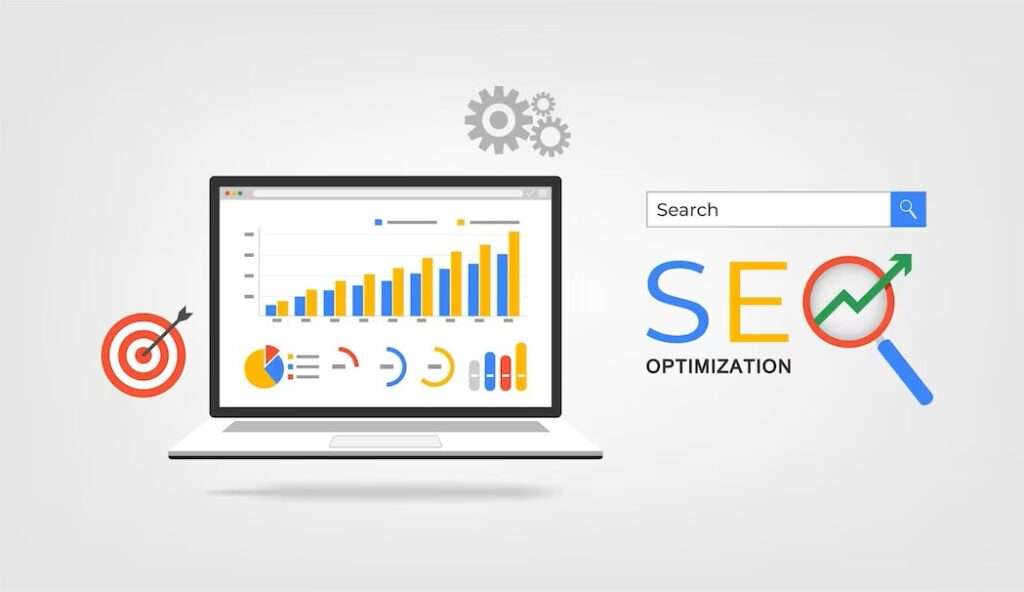
Understanding Google’s Indexing Problems and Recent Updates
Hello everyone, I am Rajat Rastogi from Internetgurukul.com. In today’s blog post, we will be discussing Google’s indexing problems and the solution to recent updates.
The Problem with Google
Many of us have issues with Google. Some complain that Google is not indexing their website, while others grumble that their high-quality content is not ranking. Some are worried about their content being stolen and not ranked by Google. With Google releasing updates one after the other, it’s natural to feel a sense of panic and confusion.
The Cost of Running a Search Engine
Have you ever wondered what hardware is needed to make a search engine? And how many staff would be needed? Google is not going to share its own process and hardware information. But let’s look at the hardware and staff requirements of a normal search engine.
We will need crawling servers, web servers, load balancers, database servers, and caching servers. And along with that, we will need a massive bandwidth network connection. And if we talk about staff, we need DevOps engineers, software engineers, data engineers, and support staff. Together, we will also need project managers.
If we make a normal search engine that only indexes 10 lakh pages and only handles 1 lakh searches every day, then the cost of such a search engine will be around 50 lakh rupees per month. Now Google indexes crores of pages and handles 850 crore visits every day. You can estimate the cost for Google.
According to Google’s documents, in 2022, it spent around 2 lakh crores on its infrastructure. This amount is more than the budget of the entire state of Punjab and a little less than Tamil Nadu.
High-Quality Content
Google does not want to crawl or index any page that does not add value. Whose content is not good. Which the user is not searching. Which no one wants to read. We turn around and come to the same keyword – high-quality content.
But what is high-quality content? It is essential to understand this because everyone says that indexing should also have high-quality content and ranking should also have high-quality content.
High quality is a relative term. On one page, the sign of the adjective high quality can go to the other page quality or dangerous content can also be made. So maybe Google system is not able to confidently decide the quality.
In conclusion, understanding Google’s indexing problems and recent updates can help us better optimize our websites for search engines. Remember that high-quality content is key to getting indexed and ranked by Google.
The Challenge of Quality Content
Google uses a lot of direct and indirect signals to determine the quality of content. For instance, Google almost always indexes the homepage of every website, regardless of whether the sitemap is submitted or not, or whether backlinks are made or not. Google takes data from the domain registrar and indexes the homepage of the website. But whether it will index other pages or not depends on a lot of different signals.
These signals include the quality of the content on the homepage, internal linking, and whether the website has submitted the sitemap or not. Google gives a hint in its quality raters guideline, but most SEOs are not able to judge their content on their basis.
The Expectation of High-Quality Content
Google expects you to compare your content with the best content, not with the worst content. Remember, I told you at the beginning of the video, what is the estimate of Google’s expenses? Well, the truth is that so much content has been published that even if your content is better than 70% of your niche or industry website, Google doesn’t want to index it because there is no need for it.
The Limitations of AI Systems
Humans don’t make all these screening, crawling, and indexing decisions. Google is taking AI systems. And along with AI systems, you should always remember one thing. This is a very simple thing but almost everyone is ignoring it right now in the SEO world. That is, these AI systems are never 100% accurate.
100% accuracy has not been in Google’s system for many years. And it’s fine for Google because as I just said, the internet is very big and it is growing very fast. No manual system can do this task for Google. The bad thing is that they will work with less accurate AI systems.
The Impact on SEO
So how can an SEO understand whether its content is worth indexing or not? Or whether it is worth ranking or not? Well, there are two ways and both are not easy. There are two ways – number one is user satisfaction and number two is your experience.
User satisfaction is not something you can find in GA, GST, SEMrush, or any tool. Bounce rate, and session duration – these are all useless metrics. The real metric is how many users are coming to your website again and again. How many times are people sharing your pages on social media? And how much natural link is your content earning?
User Satisfaction and Experience
User satisfaction and experience are two key factors that can help an SEO understand whether their content is worth indexing or not, or whether it is worth ranking or not.
Customer happiness is determined by how many users are coming to your website again and again, how many times people are sharing your pages on social media, and how many natural links your content is earning. How many times is it happening that people are naturally linking your article to their website? All of these little things help Google understand that your website is more helpful for a particular niche or query, and it should rank it.
Your experience as an SEO or a webmaster also plays a crucial role. If you understand that your content is valuable and people visiting your website are constantly reading that type of content, commenting on it, sharing it, linking it, and Google is still not ranking it, then you don’t need to change anything. Just give it time. Google will realize its mistake on its own.
The Takeaway
So, you have to keep these things in mind and focus on improving the quality of your page overall. You have to focus on improving the SEO of your page naturally. Stay away from hacks and shortcuts.
I hope that you have gained some insights from this blog post and found some useful things that you can use in your strategy to improve the SEO of your website. Let’s meet in the next blog post with some new things, new software, and new tools. Thank you so much for reading this blog post.
How can I improve my website’s ranking on Google?
Content of a high caliber is essential for boosting Google results. Enhance on-site SEO, incorporate LSI keywords into your content, monitor technical SEO, align content with search intent, lower bounce rates, locate pertinent keywords, publish high-quality content, create backlinks, monitor results using tools like Google Analytics, and use meaningful visuals to do this. You may increase your website’s ranking on Google and increase your chances of ranking by concentrating on these tactics.
Improving your website’s Google rating requires a combination of tactics. Here are some things you can do:
- Increase Your On-Site SEO: One of the quickest strategies to increase your Google ranks is to improve your on-page SEO. Make sure your keyword appears at the beginning of your title tag. Also, make your article at least 1800 words long.
- Include LSI Keywords on Your Page: LSI keywords are a sophisticated on-page SEO tactic.
- Keep an eye on the technical features of your website, such as site performance, mobile friendliness, and safe browsing.
- Match Your Content to Search Intent: To have the highest chance of ranking, align your page with search intent.
- Reduce Your Bounce Rate: The lower your bounce rate, the more likely you are to rank higher.
- Find Targeted Keywords: Look for keywords that are relevant to your content and have a high search volume.
- Publish High-Quality Material: Getting indexed and ranked by Google requires releasing high-quality material.
- Create Backlinks to Your Site: Backlinks from credible sites can increase your site’s credibility and ranking.
- Track and Monitor Your Results: Use tools like Google Analytics to track your progress and make any adjustments to your approach.
- Include Meaningful Visuals: Visuals can increase the engagement and shareability of your content.
Remember that SEO is a long-term process, and results may take time to appear. You can, however, improve with regular effort and the appropriate tactics.
Can you explain more about the recent updates?
Google has been implementing core updates to its search algorithms and systems, aiming to improve search results. The most recent updates were in March and August 2023, aiming to improve how Google’s systems assess content overall. These changes may lead to under-rewarded pages performing better in search results. If a website sees a decline in performance after a core update, it may be due to adjustments made by the update rather than content or site structure issues. Google recommends looking closely at pages that aren’t performing well, checking search terms, and comparing content to Google’s help page. Recovery from core updates is not guaranteed and can take several months.
Read More: SEO Updates from Last Month: A Comprehensive Roundup
What are some common SEO mistakes to avoid?
To improve SEO, avoid common mistakes such as not doing keyword research, not matching search intent, targeting difficult keywords, building enough backlinks, breaking Google’s Terms of Service, missing internal link opportunities, not allowing Google to crawl your content, having an extremely slow site, treating SEO as a one-time thing, ignoring local SEO, having a mobile-optimized website, optimizing your XML sitemap, underestimating internal links, and creating poor-quality content. By understanding these factors, you can improve your site’s ranking and attract more visitors. Additionally, optimizing your XML sitemap helps search engines understand your site’s structure and pages.
Here are some frequent SEO blunders to stay away from:
- Not Conducting Keyword Research: A lot of website owners just spit out content at random and hope for search traffic. But if no one is looking up those topics, then no one is visiting any pages.
- Not Matching Search Intent: Google strives to give users the most pertinent answer possible for each search. Therefore, to rank highly on Google, you must appear as the most pertinent result.
- Targeting Overly Difficult Keywords: It’s critical to choose keywords for which you have a reasonable possibility of ranking.
- Not Creating Enough Backlinks: Backlinks from trustworthy websites can increase your site’s authority and ranking.
- Building Links While Violating Google’s Terms of Service: This may result in penalties that lower the ranking of your site.
- Missing Internal Link Opportunities: Internal links can be used to disperse link equity throughout your site, which will benefit your SEO efforts overall.
- Refusing to Let Google Crawl Your Anything: Google cannot index anything that it cannot crawl.
- Not Allowing Google to Index Your Material: Your material won’t show up in search results if it isn’t indexed.
- Having an Extremely Slow Site: Site speed affects rankings, and a slow site might hurt your SEO.
- Treating SEO as a One-Time Thing: As algorithms evolve, SEO requires continual work and modifications.
- Ignoring Local SEO: If you run a local business, it’s essential to optimize for local search. Not Having a Mobile Optimized Website:
- A mobile-friendly website is crucial because the bulk of searches are now made on mobile devices.
- Not Optimizing Your XML Sitemap: An XML sitemap aids search engines in comprehending your website’s structure and locating all of its pages.
- Undervaluing Internal Links: Internal links assist search engines in figuring out the context and substance of your pages.
Creating Low-Quality Material: Google will not index or rank your website if you have low-quality material.


